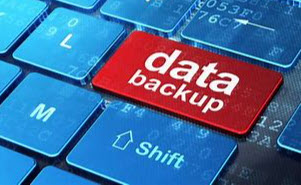 We all know that backup is important, and you no doubt already have some kind of backup solution in place. What may be up for debate (at least between vendors) is what technologies are the foundation upon which an organizations security strategy should be built.
We all know that backup is important, and you no doubt already have some kind of backup solution in place. What may be up for debate (at least between vendors) is what technologies are the foundation upon which an organizations security strategy should be built.
For small businesses the result of having overworked and underfunded network administrators can at times result in a reactionary security strategy. This creates a piecemeal system of security measures that fail to work together seamlessly. But the fact is, your backup solution will need to interact with every single branch of the security shield that is defending your data assets. If tomorrow you were gifted the opportunity of wiping away all security in your organization and starting fresh, where would you start?
Today we look at the reasons that backup must be at the core of every IT security strategy:
Efficient Backup Equals Greater Productivity
Those who resign backup to a lower priority in their security strategy are usually the first to complain of reduced network performance during backup or the inability to meet their backup window. Efficient backup is invisible to all except the sysadmin, never hinders staff progress and quickly performs a restore in the event of a data-loss incident.
The Rise of BYOD and WFH
The modern workplace often includes remote workers (WFH), mobile devices, and on-the-go executives, making it hard to keep a handle on all critical data endpoints. If an executive laptop is left in a taxi or dropped in a pool, is an automatic backup accessible for complete disaster recovery? The popular trends of Bring Your Own Device (BYOD) and Work From Home are evolving. This means that backup must account for a wide range of new devices and changing environments.
Antivirus is Great but Imperfect
No antivirus can predict the next (0-day) ransomware, or have the ability to block every incoming malware or phishing scheme. In fact, some of so-called security products have been known to come with vulnerabilities of their own! Does that mean antivirus is unnecessary? Absolutely not. Anti-Virus and Anti-malware are vital. Backup is your failsafe when all other defenses fail.
The Human Factor
Rolling out security policies and employee training to avoid dangerous risks is hugely important. But exhausted workers make mistakes, like deleting or overwriting the wrong files. Ex-employees may hold a grudge or other bad actors may destroy data or bring in infected portable storage devices.
Staggering Data Growth
What was once recorded in notebooks, is now often recorded in video. Rapid growth of critical data makes restorability both a challenge and a top priority. If you can’t identify and locate data quickly, you are dead in the water. A clear backup strategy that includes regular backup restorability testing is your key to uninterrupted data accessibility.
The Wrath of Nature
We won’t preach about global warming here, but physical destruction of data storage happens every day. The ability to start fresh with brand new infrastructure and get back to business in an acceptable timeframe is the gold standard of any disaster recovery process. Your backup strategy must detail priorities and steps for a total-loss scenario.
The necessity of a flexible backup solution is beyond debate. In an age where we must constantly respond to both outside attack and internal strife, it may be that the best defense is a good offense with proactive measures. But in the event that those measures fail, there’s only one way you’re getting back into action quickly. By considering all aspects of how your data monitoring and backup system affects other security assets, you’ll avoid a defense structure riddled with vulnerabilities.
